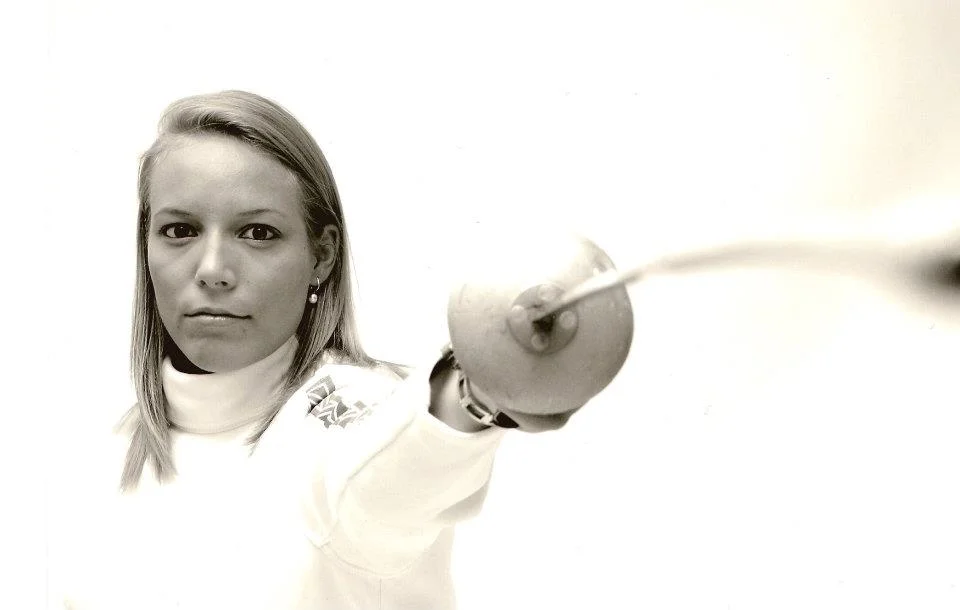Growth Mindset: What the business elite can learn from the sporting elite
Allow me to introduce myself. My name is Claire Bennett, I am a former Great Britain international fencer, and I have represented Great Britain internationally at Cadet, Junior and Senior level from the age of 14 including European Championships and World Championships.
This feels like a lifetime ago as I approach the end of my maternity leave and embark on an exciting new chapter as an Associate of Sport and Beyond.
Gone are the days of training 5 hours a day, travelling around the world and maintaining a regimented training schedule. These days I am most likely to be found at baby and Mum ‘boxilates’ classes and working as efficiently and effectively as possible around my busy life as a working Mum.
Whatever new challenges come my way, the skills and behaviours that I developed in elite level sport like having a strong work ethic, never giving up and seeing things through to the end, put me in good stead when I embarked on my professional career outside of the sporting arena.
The most difficult moment in my sporting career was Olympic 2012 year. That year I trained harder than I had ever trained before in my fencing career. I gave it my all and made sure I left nothing in the tank often to the exclusion of friends, family and social life. I was relentless in my determination to achieve my goal of becoming an Olympian.
Unfortunately, despite all of my hard work, I was not selected to represent Team GB at the Olympic Games. I just missed out.
It was the hardest thing I have ever had to go through. Can you imagine working 17 years of your life and committing yourself so fully to something you believed in and not making it? I experienced hurt and emotions that were hard to face up to.
In my life after sport, I found it hard to see what might fill the gap. When you have this drive, this motivation, this passion, you can’t imagine not doing the thing that you were really good at.
With perspective, what I learnt is not to let disappointment hold you back. When I dared to stand up for what I believed in again, I found happiness, success and a new lease of life. I managed to pick myself back up and I started to work on my growth mindset again. I realised I could be successful in my life beyond sport.
Ensuring that I trained my growth mindset on a daily basis, helped me to bounce back quicker and go for something important again.
Shortly after retiring from sport, I became the Senior Athlete Manager at the Dame Kelly Holmes Trust. The Trust helped me to identify my transferrable skills and use my high performing mindset to my advantage.
Having a growth mindset enabled me to reflect, gain perspective and it gave me the freedom and motivation to move on in my life after sport.
Individuals who believe their talent can developed, (through hard work, dedication and resilience), have a growth mindset.
You need to keep your self-talk in check and ensure that you are in control of your thoughts in a positive way. Try to deflect negative self-talk and find a way to re-frame situations you’re not happy with. Give yourself time to reflect and gain perspective, and always be flexible in your approach.
My instinct will always be to work hard, as I did throughout my sporting career. I have the same hunger now in the workplace as I did when I was training for the Olympic Games.
I am constantly looking to improve my performance and go the extra mile. My work ethic is as strong as when I was an elite athlete.
There must also always be a purpose when I undertake a piece of work. As a former athlete I won’t just keep doing the same thing day after day. I am purposeful in my actions and challenge things I don’t understand.
Athletes have a set of soft skills like the ability to analyse performance and thinking correctly under pressure, which I think, is invaluable in the workplace. Soft skills such as the ability to lead are often innate and instinctive in an athlete as this is what they are wired to do.
What elite athletes also do really well and are constantly on the lookout for is asking for feedback and spending valuable time reflecting on their performance.
When given effectively, providing your employees with more feedback is one of the best ways to demonstrate your involvement in their professional development.
To make the most of the benefits of a feedback culture and in order for staff to accept constructive feedback, they must have a growth mindset.
Reflective practice has huge benefits such as increasing self-awareness, which is a key component of emotional intelligence, and developing a better understanding of others.
There is a great deal that elite athletes and business leaders can learn from one another. Success isn’t just about having a certain skillset; it’s about your daily attitudes, behaviours and growth mindset.
Time to dust off my work clothes and commit to developing my growth mindset. I am delighted and excited to be starting my next chapter with Sport and Beyond.
To discuss any of the points raised in this blog, contact Claire on: claire@sportandbeyond.co.uk

